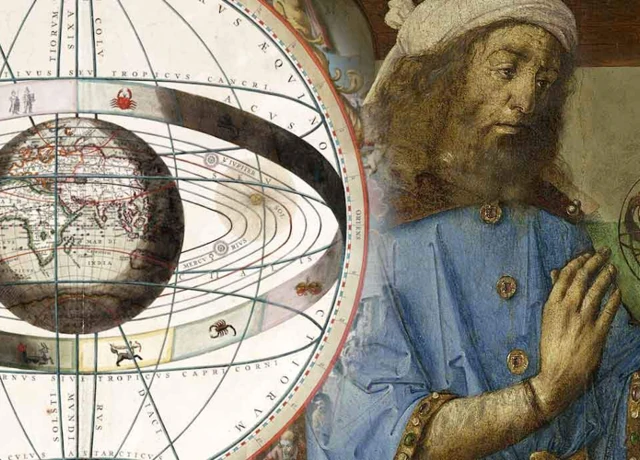Astrology has played a fascinating role throughout the history of ancient civilizations. From Mesopotamia to Egypt, Greece, China, and India, astrology has captured the imaginations of people for centuries. By studying the stars and celestial movements, ancient cultures believed they could gain insight into the mysteries of life, fate, and the universe. In this article, we will delve into the rich astrological traditions of various ancient civilizations, exploring their origins, beliefs, and the significant role astrology played in shaping their societies. Join us on this captivating journey through time as we uncover the profound influence of astrology in ancient civilizations.
Astrology in Ancient Mesopotamia
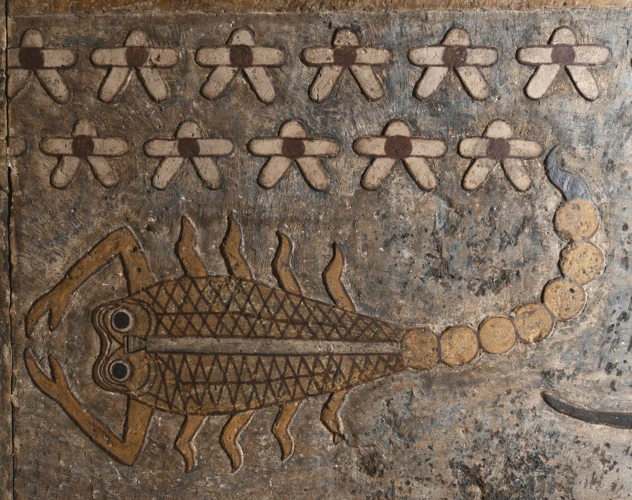
Astrology in Ancient Mesopotamia, known as the cradle of civilization, held a prominent place in the lives of its people. Mesopotamians believed that celestial movements and the positions of the stars and planets held great significance and had a direct impact on human affairs. The origins of Mesopotamian astrology can be traced back to around the 2nd millennium BCE when ancient astronomers began observing the sky and recording their observations. They developed complex systems of divination and astrological interpretations based on these celestial observations. Astrology played a crucial role in Mesopotamian society with astrologers advising their kings and elites on matters of state, agriculture, warfare, and even childbirth. It was believed that by studying the stars, one could gain insight into the will of the gods and make informed decisions about the future. Mesopotamian astrology laid the foundation for various astrological practices and readings that are still followed to this day.
1.1 Origins of Mesopotamian Astrology
The origins of Mesopotamian astrology can be traced back to the ancient civilization of Sumer, which flourished in the fertile lands between the Tigris and Euphrates rivers around 3000 BCE. The Sumerians were among the first to develop a system of celestial observations and interpretations, which laid the foundation for Mesopotamian astrology. Their fascination with the heavens led them to establish a connection between the movements of celestial bodies and earthly events. They believed that the gods used the stars as a means of communication and that by studying the sky, they could decipher divine messages. The Sumerians developed an intricate system of celestial omens, where they associated specific events on Earth with celestial phenomena. This system eventually evolved into astrological practices that extended beyond omens and became a way to predict future events and gain insight into human behavior. As Mesopotamian civilization progressed, astrology became an integral part of their culture, influencing various aspects of daily life, including politics, agriculture, and medicine. The Babylonians, who followed in the footsteps of the Sumerians, further refined the astrological techniques, creating detailed celestial maps and establishing a zodiac with twelve signs. These early developments in Mesopotamian astrology laid the groundwork for the astrological traditions that followed in ancient Egypt, Greece, and other civilizations.
1.2 Role of Astrology in Mesopotamian Society
Astrology played a pivotal role in Mesopotamian society, permeating every aspect of life. It was deeply ingrained in the religious and cultural fabric of the civilization, shaping social rituals, governance, and personal decisions. Astrologers, known as “barû” or “apilu,” were highly respected and held influential positions in the royal courts. They were responsible for interpreting celestial omens and advising the king and other leaders. Astrology was used to guide the rulers in matters of war, agriculture, and health, as well as to determine propitious times for important events such as coronations and temple constructions. The Mesopotamians believed that the gods communicated their will through celestial signs, and astrology served as a means to decipher these messages. Astrological divination was used to predict natural disasters, determine the outcome of battles or harvests, and even provide guidance in matters of love and marriage. The belief in astrology extended to individual households as well, with families consulting astrologers to ensure the well-being and success of their children. Astrological tablets, detailing the positions of celestial objects and their corresponding interpretations, were meticulously maintained by scribes and consulted regularly. The accuracy of astrological predictions was highly valued, and astrologers were revered for their ability to foresee and mitigate potential challenges. The influence of Mesopotamian astrology extended beyond the ancient world, shaping future astrological practices and readings we still use today.
Astrology in Ancient Egypt
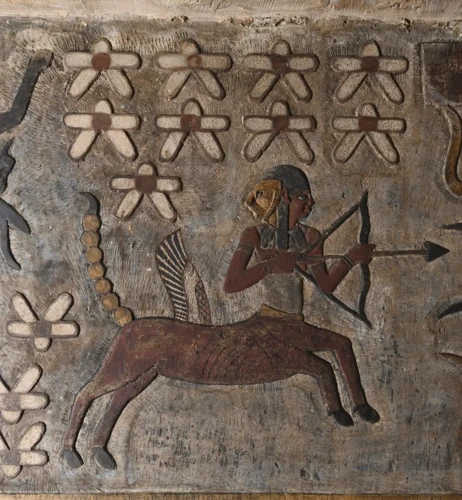
Astrology held a significant place in the ancient civilization of Egypt, where it was deeply intertwined with their beliefs and mythology. Egyptian astrology was based on the notion that the movements of celestial bodies, particularly the Sun, Moon, and planets, influenced human personalities and determined one’s destiny. Each person was associated with a specific Egyptian zodiac sign based on their birth date, and this sign influenced their character traits and life path. The ancient Egyptians also believed in the existence of a 13th zodiac sign called Ophiuchus, which has been a topic of debate and intrigue among modern astrologers. Astrology played a vital role in Egyptian culture, guiding everything from agriculture and construction to medical treatments and religious rituals. The influence of astrology can still be seen in modern-day Egyptian astrology and the various types of astrological readings used to gain insights into one’s life and future.
2.1 Beliefs and Mythology of Egyptian Astrology
Egyptian astrology was deeply intertwined with the religious beliefs and mythology of ancient Egypt. The Egyptians believed that the movement of the celestial bodies, particularly the sun and the stars, was connected to the gods and had a direct influence on their lives. They worshiped many deities associated with astronomical phenomena such as Ra, the sun god, and Nut, the goddess of the sky. The ancient Egyptians developed a complex astrological system based on the annual flooding of the Nile River, which was considered crucial for their agricultural success. They believed that the stars and constellations governed different aspects of life, and each individual was assigned an Egyptian zodiac sign based on their birth date. This zodiac system consisted of 12 signs, similar to the Western zodiac, and it was believed that each sign represented specific qualities and characteristics that influenced a person’s destiny. The Pharaohs and leaders of ancient Egypt relied heavily on astrological advice for decision-making, such as determining the most auspicious time to embark on military campaigns or agricultural activities. Egyptian astrology also played a significant role in funeral rituals and the belief in the afterlife. The Book of the Dead, a collection of spells and prayers, contained astrological references and guidance for the deceased to navigate the celestial realm. Astrologers in ancient Egypt were highly respected and sought-after for their ability to interpret celestial omens and provide guidance. While Egyptian astrology had its unique characteristics, it also shared similarities with other ancient astrological traditions, such as the use of horoscopes and the belief in the influence of celestial bodies on human destinies.
2.2 Applications of Astrology in Egyptian Culture
Astrology had a wide range of applications in Egyptian culture, playing a significant role in various aspects of their society. Egyptian astrologers, known as “Clerks of the Stars,” were highly respected and their knowledge was sought after by both the rulers and everyday individuals. One of the primary applications of astrology was in predicting the annual flooding of the Nile River, a crucial event for Egyptian agriculture. By observing the positions of certain stars, such as Sirius, the Egyptians believed they could forecast the flood levels and ensure successful harvests. Astrology also played a crucial role in Egyptian medicine, with physicians considering the positions of the stars and planets when diagnosing and treating ailments. Additionally, astrology influenced the lives of individuals through horoscopic divination. Egyptians would consult astrologers to determine their fate, personality traits, and even romantic compatibility through the interpretation of their birth charts. Astrology was deeply intertwined with Egyptian mythological beliefs, and various gods and goddesses were associated with different astrological phenomena. Astrology was an integral part of Egyptian culture, guiding their decisions, providing insights into the future, and shaping their view of the world.
Astrology in Ancient Greece
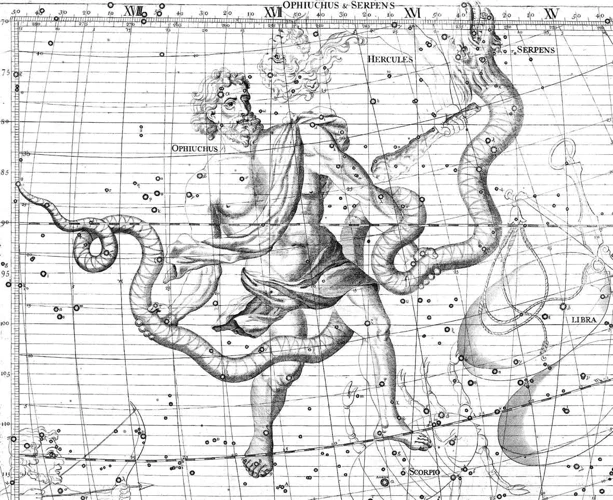
Astrology in Ancient Greece held a significant place in the culture and beliefs of the Greek civilization. Greek philosophers and scholars were deeply interested in the study of celestial bodies and their influence on human lives. Astrological practices and philosophies in ancient Greece varied, with different schools of thought emerging. The renowned philosopher Hippocrates, for example, believed in the influence of celestial bodies on health and used astrology to diagnose illnesses. Astrology was closely intertwined with Greek mythology, with each zodiac sign being associated with a mythological figure. This connection between astrology and mythology added a sense of mysticism and symbolism to the astrological interpretations. The ancient Greeks developed complex astrological readings and techniques, such as horoscopes and natal charts, to gain insight into individuals’ personalities, destinies, and relationships. These practices laid the foundation for the various types of astrological readings that are still popular today.
3.1 Astrological Practices and Philosophies in Ancient Greece
Astrological practices and philosophies in ancient Greece were deeply intertwined with the beliefs and mythology of the Greek civilization. The Greeks believed that the positioning and movements of celestial bodies held profound meaning and influence over human lives. They practiced a form of astrology called Hellenistic astrology, which was a blend of Mesopotamian, Egyptian, and ancient Greek knowledge. Astrologers in ancient Greece used various techniques, such as horoscopic astrology, to interpret the positions of the planets and their interactions with each other at the time of an individual’s birth. The birth chart, known as the horoscope, was a crucial tool in understanding an individual’s personality traits, strengths, weaknesses, and potential future events. Greek philosophers, such as Plato and Aristotle, also pondered the deeper philosophical implications of astrology. Plato believed that the movements of the heavens reflected the order and harmony of the universe, while Aristotle saw astrology as a means to understand causality and predict natural events.
Astrology played a significant role in various aspects of Greek society. It was used to guide decision-making in matters of state, agriculture, medicine, and personal relationships. Astrologers served as advisors to kings, helping them make important political and military decisions. Greek physicians practiced medical astrology, using the positions of the planets to diagnose and treat ailments. The concept of the zodiac, consisting of twelve astrological signs, originated in ancient Greece and became a fundamental part of astrological practice. Each sign was associated with specific personality traits and qualities, influencing how individuals were perceived and understood.
Astrologers in ancient Greece developed intricate systems of divination and used celestial omens to predict future events. They believed that celestial phenomena, such as eclipses and comets, were signs from the gods, carrying messages and warnings for humanity. Astrology also played a significant role in the Greek religious rituals and festivals, where astrologers would interpret the celestial signs to determine the most auspicious dates and times for various ceremonies. The influence of astrology extended beyond personal horoscopes and permeated all aspects of Greek culture and society, shaping their understanding of the cosmos and their place within it.
3.2 Astrology and Greek Mythology
Astrology and Greek mythology are intricately intertwined in the ancient Greek culture. The Greeks believed that the gods, who controlled various aspects of life and the natural world, also influenced the movements of the celestial bodies. Many of the Greek myths feature gods and goddesses associated with specific planets and constellations, giving rise to the belief that these celestial bodies held significant power over human affairs. For instance, the mighty Zeus was linked to the ruling planet Jupiter, known as Zeus in Greek mythology. Similarly, Aphrodite, the goddess of love and beauty, was associated with the planet Venus. The mythology of the twelve Olympian gods and goddesses, including Apollo, Hermes, and Artemis, also played a role in shaping astrological interpretations. The Greeks believed that the positions of the planets and constellations at the time of a person’s birth determined their personality traits and destiny, much like the twelve zodiac signs in modern astrology. The connections between astrology and Greek mythology are profound, showcasing the ancient Greeks’ belief in the interconnectedness of the divine, the celestial, and the earthly realms.
Astrology in Ancient China
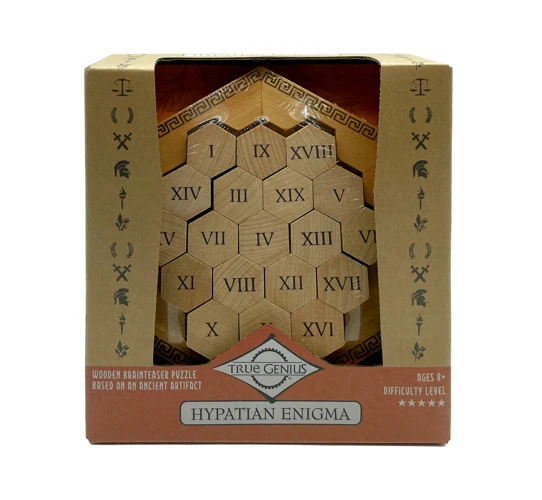
Astrology in Ancient China had a profound influence on the culture and beliefs of the Chinese people. Chinese astrology is deeply rooted in the concept of the Zodiac, which is based on the lunar calendar. The Chinese Zodiac consists of twelve animal signs, each representing a different year in a twelve-year cycle. People born in a specific year are believed to possess certain characteristics and traits associated with the animal of that year. Chinese astrology was not only used for personal predictions, but it also played a significant role in Chinese society, particularly in the areas of medicine, agriculture, and governance. Astrology was used to determine auspicious dates for important events, such as weddings and business ventures, and to gain insights into individual personalities and compatibility. Chinese astrology continues to be popular today, with many people seeking astrology readings to gain a deeper understanding of themselves and their future.
4.1 Chinese Zodiac and Astrology
The Chinese Zodiac and astrology have a rich and ancient history that dates back thousands of years. The Chinese Zodiac, also known as Shengxiao, is a twelve-year cycle in which each year is associated with a specific animal sign. These animal signs are the Rat, Ox, Tiger, Rabbit, Dragon, Snake, Horse, Sheep, Monkey, Rooster, Dog, and Pig. According to Chinese astrology, each animal sign is believed to have certain personality traits and characteristics that influence a person’s destiny and compatibility with others. The Chinese Zodiac is not only used to determine an individual’s personality traits and compatibility but also plays a significant role in traditional Chinese culture, including marriage, naming children, and even determining the best time for important life events. Chinese astrology also incorporates the five elements—Wood, Fire, Earth, Metal, and Water—which cycle through each animal sign every sixty years, creating a more complex system of astrological interpretations. To learn more about the many types of astrological readings and their significance, click here.
4.2 Astrological Influences in Chinese Culture
Astrological Influences in Chinese Culture
Astrology has had a profound impact on Chinese culture for thousands of years. Chinese astrology is deeply rooted in the principles of Yin and Yang, the Five Elements (Wood, Fire, Earth, Metal, and Water), and the Chinese Zodiac. The Chinese Zodiac, also known as Shengxiao, is a twelve-year cycle where each year is represented by an animal sign. These animals include the Rat, Ox, Tiger, Rabbit, Dragon, Snake, Horse, Sheep, Monkey, Rooster, Dog, and Pig. The Chinese believe that the year of a person’s birth sign influences their personality traits, compatibility with others, and even their destiny.
Chinese astrology also takes into account the concept of the Four Pillars of Destiny, which consists of the year, month, day, and hour of a person’s birth. These Four Pillars, also known as Ba Zi, are used to determine a person’s destiny and provide insights into their strengths, weaknesses, and life path. The Chinese believe that by understanding these astrological influences, individuals can make better decisions, choose auspicious dates for important events, and navigate their lives more effectively.
Astrology is deeply intertwined with various aspects of Chinese culture. It influences naming conventions, marriage compatibility, career choices, and even daily activities. For example, during Lunar New Year celebrations, people consult astrological experts to determine their luck and fortune for the coming year. The Chinese also use astrology to guide business decisions, such as determining auspicious dates to start new ventures or sign contracts.
Chinese astrology influences traditional medicine and health practices. The concept of Qi (life force energy) and Yin and Yang balance are also utilized in traditional Chinese medicine to diagnose and treat illnesses. Astrological signs are taken into consideration when prescribing treatments or dietary recommendations to maintain a harmonious balance within the body.
In modern times, Chinese astrology continues to be popular and widely practiced. Many individuals still refer to their astrological charts and consult experts for guidance in various aspects of life. The rich astrological influences in Chinese culture highlight the enduring nature of astrology and its significance in shaping traditions, beliefs, and daily practices.
Astrology in Ancient India
Astrology in Ancient India has a profound and enduring influence on the culture and spirituality of the region. In ancient times, astrology, known as “Vedic Astrology,” was an integral part of the Vedic scriptures which guided the beliefs and practices of the Hindu and Buddhist societies. Vedic Astrology placed great importance on the alignment of celestial bodies and their relationship to human life. It included the study of the stars, planets, and constellations to predict events and understand the influences in an individual’s life. Hindu and Buddhist cultures believed in the concept of karma and reincarnation, and astrology played a significant role in guiding individuals on their spiritual journeys. Today, Vedic Astrology continues to be widely practiced in India and around the world, providing insights into personality traits, relationships, and life events.
5.1 Vedic Astrology in Ancient India
Vedic Astrology, also known as Jyotish, is an ancient astrological system that originated in ancient India. It is a part of the Vedas, the sacred texts of Hinduism, and is believed to have been revealed to sages through divine inspiration. Vedic Astrology is deeply rooted in the belief that the positions of celestial bodies at the time of a person’s birth can provide valuable information about their personality, relationships, and life events. The system is based on the concept of karma and reincarnation, with the belief that individuals’ actions in past lives influence their current circumstances. The astrological chart, or Kundali, is created based on the exact time, date, and place of an individual’s birth. It includes the positions of the sun, moon, planets, and other important celestial points. Vedic Astrology encompasses a wide range of astrological techniques and principles, including the interpretation of planetary transits, dasas (planetary periods), and the analysis of yogas (planetary alignments). Vedic Astrology has had a profound impact on Indian culture, influencing various aspects of life such as marriage, auspicious timing for ceremonies, and even daily activities. It continues to be widely practiced and respected in India and has gained popularity worldwide for its accuracy and depth of insight. To learn more about other interesting aspects of astrology, you can read our article on the 13th Zodiac sign, Ophiuchus.
5.2 Astrological Beliefs in Hinduism and Buddhism
Astrological beliefs in Hinduism and Buddhism are deeply rooted in the ancient traditions and spiritual practices of these religions. In Hinduism, astrology is known as Jyotisha, which means “the science of light.” It is considered a sacred tool for understanding the cosmic influences on individual lives and determining auspicious timings for important events, such as marriages, ceremonies, and journeys. Hindu astrology is primarily based on the concept of the zodiac, with each zodiac sign associated with specific planetary influences. The birth chart, also known as Kundali, is an essential component of Hindu astrology, which maps the positions of the celestial bodies at the time of an individual’s birth. These positions are believed to shape the person’s character, destiny, and life events.
In Buddhism, astrology is known as Astro Buddhism and is considered a valuable tool for guiding spiritual practice. Buddhist astrologers use various astrological calculations to identify auspicious dates for religious ceremonies, meditation retreats, and other significant events. Buddhist astrology emphasizes the Buddhist concept of karma, suggesting that the planetary positions at the time of a person’s birth may provide insights into their past karmic influences and predispositions. Astrology is also used to determine favorable times for undertaking virtuous actions, seeking spiritual guidance, and cultivating positive qualities.
Astrological beliefs in Hinduism and Buddhism are deeply intertwined with the spiritual and philosophical principles of these religions. They offer a framework for understanding the interconnectedness of the universe, the cyclical nature of life, and the potential for personal and spiritual growth. By integrating astrology into their practices, followers of Hinduism and Buddhism seek to align themselves with the cosmic forces and make conscious choices that contribute to their overall well-being and spiritual development.
Conclusion
In conclusion, the role of astrology in ancient civilizations cannot be understated. From Mesopotamia to Egypt, Greece, China, and India, astrology held a significant place in the lives of people across different cultures and time periods. It served as a means to understand the mysteries of the universe, to seek guidance, and to make important decisions. Astrology was intricately woven into the fabric of society, influencing everything from governance and agriculture to personal relationships and spiritual practices. The astrological beliefs and practices of ancient civilizations laid the foundation for modern astrology, shaping the way we perceive ourselves and the world around us. Even today, people continue to seek astrological guidance to gain insight into their personalities, relationships, and future paths. If you’re interested in exploring further, you can read about the influence of sun, moon, and rising signs in astrology to deepen your understanding of astrological interpretations and readings.
Frequently Asked Questions
1. Why did ancient civilizations place such importance on astrology?
Ancient civilizations believed that the movements of celestial bodies held a direct influence on human affairs and the world around them. They sought to understand the patterns and interpret the messages conveyed by the stars and planets to gain insight into their lives and the future.
2. How did Mesopotamians practice astrology?
Mesopotamians practiced astrology by observing the motions of celestial bodies and recording their findings. They developed astrological systems and interpretations based on these observations, using them to advise rulers, predict events, and make important decisions.
3. What role did astrology play in Egyptian culture?
Astrology was deeply intertwined with Egyptian culture. Egyptians believed that the movements of the heavenly bodies had a significant impact on their lives and used astrology to guide their decision-making processes in areas such as agriculture, architecture, and even royal succession.
4. How did astrology influence Greek mythology?
Astrology played a significant role in Greek mythology, with many of the gods and goddesses associated with specific celestial bodies. Greek myths often used the movements and interactions of these celestial beings to explain natural phenomena and human behavior.
5. What is the Chinese zodiac?
The Chinese zodiac is a 12-year cycle where each year corresponds to a specific animal sign. These signs are believed to have a profound influence on a person’s personality traits, relationships, and destiny. The Chinese zodiac is still widely used in Chinese culture today.
6. What is Vedic astrology?
Vedic astrology, also known as Jyotish, is an ancient astrological system originating from India. It is based on the Hindu astrological texts known as the Vedas and focuses on interpreting the positions of celestial objects at the time of a person’s birth to gain insights into their life and destiny.
7. Did astrology play a role in Hindu and Buddhist belief systems?
Astrology held considerable significance in both Hinduism and Buddhism. Hindus believe that the positioning of celestial bodies at the time of birth determines a person’s karma and life path. Similarly, Buddhists believe that astrology can offer guidance and insight into one’s spiritual journey.
8. What are the different types of astrological readings?
There are various types of astrological readings, including natal charts, horoscopes, compatibility readings, and predictive readings. These readings provide insight into different aspects of a person’s life, such as personality traits, relationships, and future events.
9. What is Ophiuchus, the 13th zodiac sign?
Ophiuchus is often referred to as the 13th zodiac sign, although it is not officially recognized in mainstream astrology. It represents a serpent bearer and is associated with attributes such as wisdom, healing, and transformation.
10. How can the sun, moon, and rising signs influence astrology?
In astrology, the sun, moon, and rising signs are considered three essential components of a person’s birth chart. They represent different aspects of the individual’s personality, emotions, and outward appearance, all of which contribute to creating a more comprehensive astrological profile.

